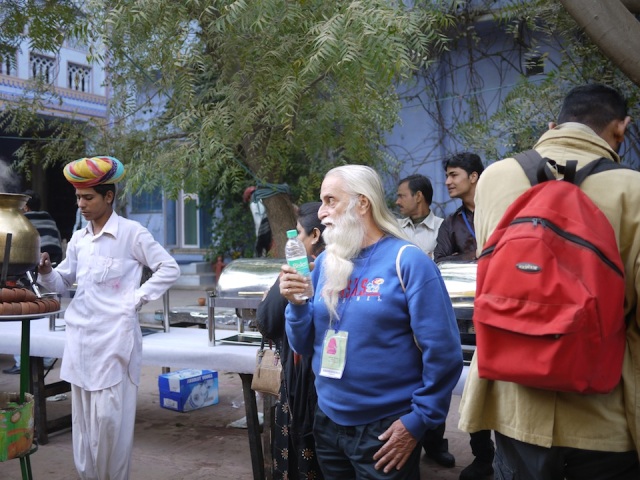Britannia in Ballard Estate is first known for its berry pulao and then for its eccentric owners. Proof of their dottiness is on the walls of the restaurant, which are hung with admonitions such as ‘Please do not argue with the management’ and pictures of the owner’s late rooster. If you’re lucky, one of Britannia’s aging owners (two old and two middle aged men man the shop) – the one whose face has a bird-like quality – will reminisce about his beloved rooster (he loved Goldspot and nuts) before he takes your order.
On a recent visit, I noticed a new oddity – a cut-out of Prince William and Kate Middleton perched on the banister of the mezzanine floor. The picture was taken after their engagement. The owners, the Kohinoors, are dedicated anglophiles. According to this story, the restaurant was named Britannia because the British commissioner in 1923 gave the founder a licence in one day on the condition that he give his restaurant a British name. A large portrait of the Queen adorns one wall; it’s right beside a portrait of the man who threw the Brits out, Gandhi.
Parsis of the late nineteenth and twentieth centuries admired the British, emulating their customs and adopting the English language. Many were sad to see the Brits leave, fearing the country would lapse in the hands of natives who were not nearly as efficient administrators. I know that my maternal, Parsi grandparents were rather fond of the Brits. They had a little collection of royal memorabilia, including a plate marking the marriage of Prince Charles and Diana in 1981.
The few Parsi ‘monarchists’ that are left didn’t have much to cheer about till the William-Kate wedding last year. If the Kohinoors keep Britannia going – they’ve been threatening to shut shop for years – Harry might join his brother and sister-in-law in watching diners eat berry pulao.



















